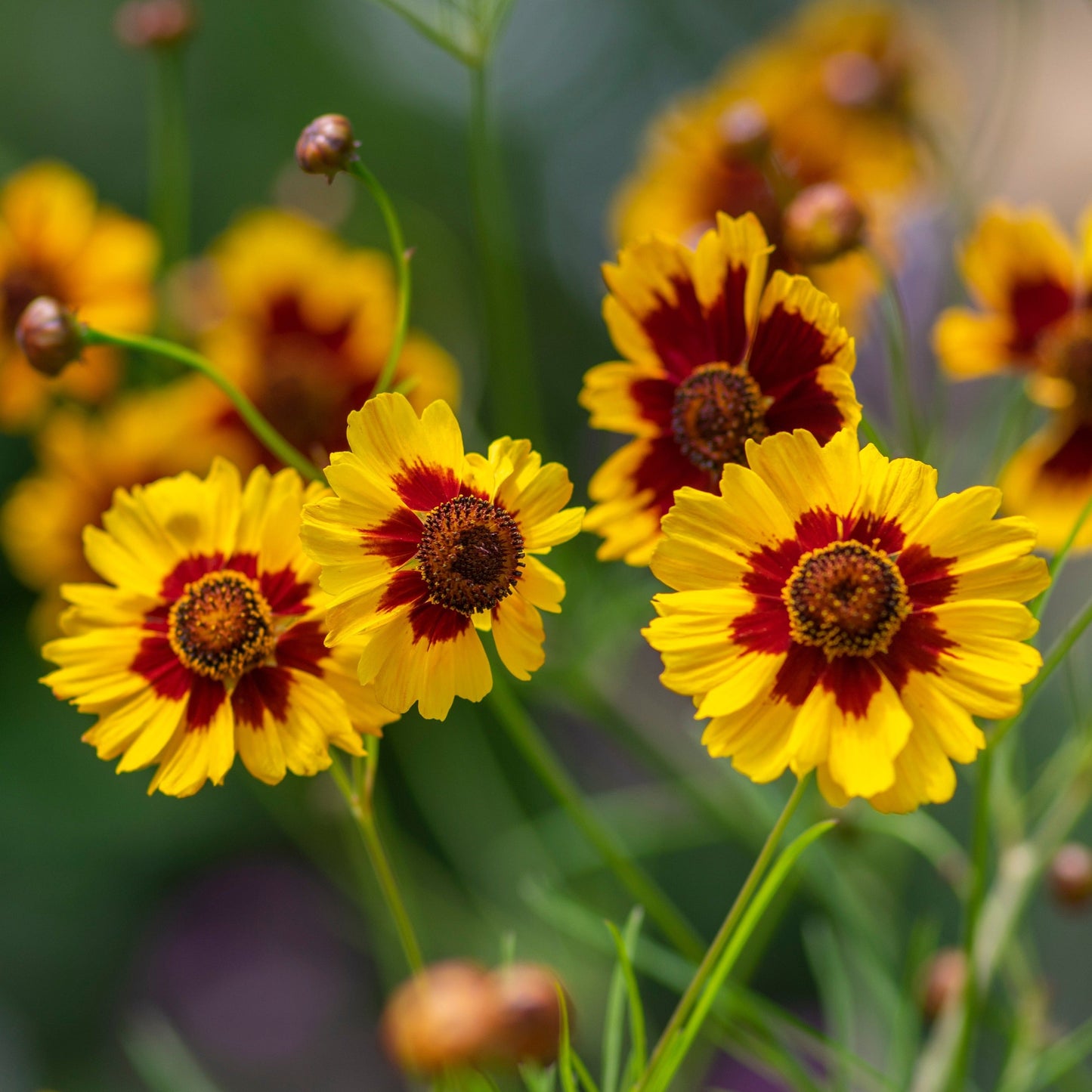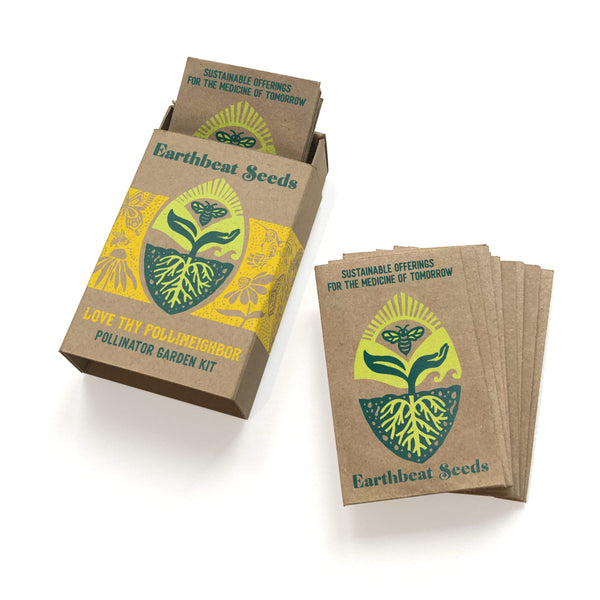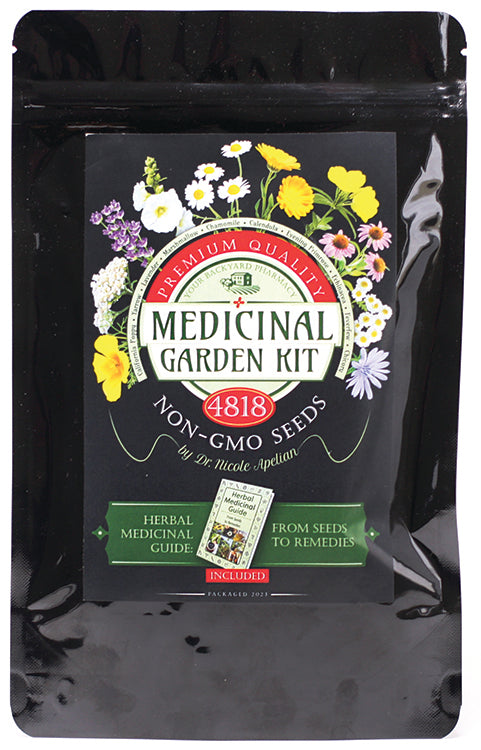Coreopsis, Dyer's Mix (Coreopsis tinctoria)
Couldn't load pickup availability
Coreopsis tinctoria, or Plains Coreopsis, is a wildflower native to the western regions of North America. It exists well in sandy or dry conditions, alongside roads and rail tracks. The genus name comes from the Greek ‘koris’ for ‘bug’ and ‘opsis,’ meaning ‘like’. This refers to the resemblance of this plant’s seed to a bug or tick, also indicated by the common name ‘Golden Tickseed.’ Another vernacular title is ‘Calliopsis.’ Their blooms are prolific, and to plant Coreopsis is to expect a slew of yellow and maroon. These hardy annuals will happily self-seed, allowing for friendly return of this plant in one’s garden each year. With an abundance of blooms, Coreopsis attracts an array of pollinators— short-tongued bees, long-tongued bees, wasps, butterflies, beetles, and flies. Their foliage provides fodder for the larvae of both Wavy-lined Emerald moths and Dimorphic Gray moths, as well as leaf beetles.
Coreopsis has been used traditionally by various tribes indigenous to the American southwest for its dye properties. The Cherokee, Apache, and Zuni peoples especially utilize the plant for this purpose. The second part of its latin name, ‘tinctoria,’ refers to the dye qualities of Coreopsis tinctoria. Its flowers yield an array of pigments from yellows, reds, oranges, and browns. More suited for wools or silk, this tint is less potent on vegetable-based fibers. The long-blooming time of this flower is ideal for a dyer’s garden, and its blossoms can be continued harvested and dried to amass a larger stock of dyeing material. The sunny presence of coreopsis is a welcome addition to wherever they may find a home, whether it be in a pollinator-attractive planting, or staining the yarn of a new favorite scarf.







